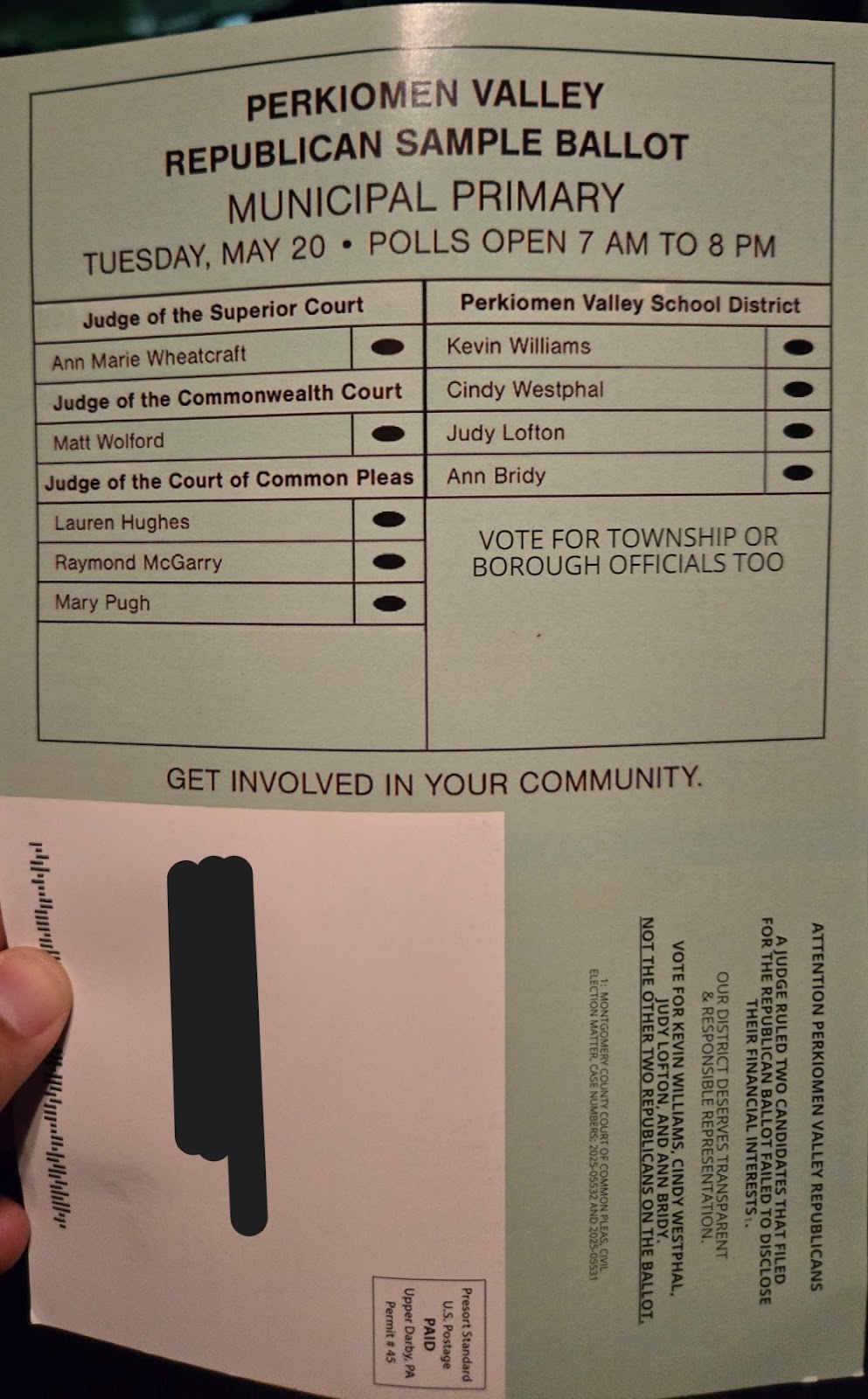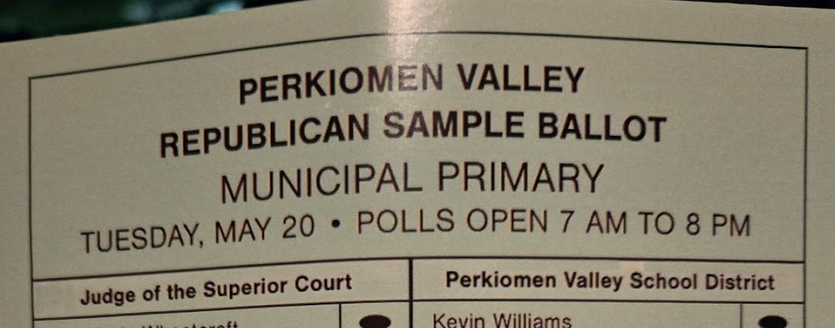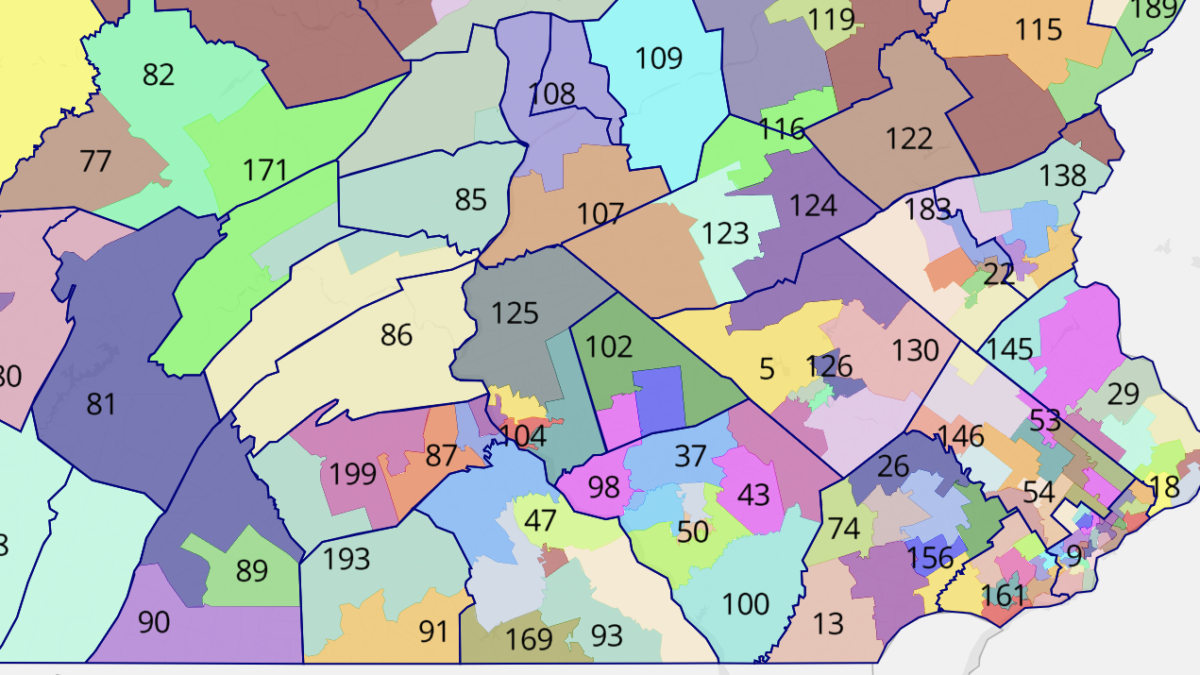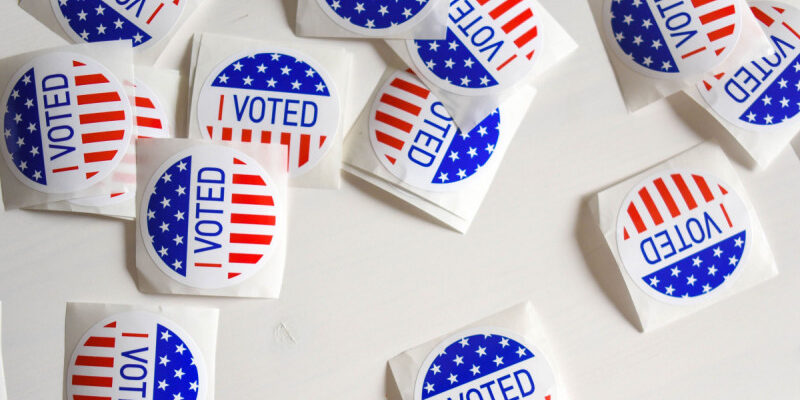Beth Ann Rosica: Our school board elections are flawed and antiquated
The concept of nonpartisan school board elections is noble, but Pennsylvania’s system is defective.
As voters go to the polls today to cast a ballot in the primary election, it is not only possible, but quite likely, the same school board candidates will appear on both the Republican and Democratic ballot.
How is this possible in a primary election where each party is attempting to nominate a candidate to run in the November general election?
Under the guise that school board directors should be “nonpartisan,” our commonwealth created a system that is convoluted and often manipulated. This confusing practice is also one of a kind — Pennsylvania is the only state in the country that does things this way.
The state election law regarding school board directors is unique in several ways. According to Ballotpedia, “over 90 percent of school boards are elected in nonpartisan elections, which means party labels for school board candidates are not displayed on the ballot.”
There are only four states in the country with laws requiring ballots to include the identification of each candidate’s political party, also known as partisan elections. Pennsylvania, Connecticut, Alabama, and Louisiana are the only states with 100 percent partisan school board elections that require an R (Republican) or D (Democratic) next to the candidate’s name.
Five states provide an option for either partisan or nonpartisan school board elections depending on the individual district. The remaining 41 states all conduct nonpartisan school board elections by law, resulting in 90 percent of directors elected without their political affiliation listed on the ballot.
While Pennsylvania is an outlier compared to the majority of other states regarding identification of party affiliation on the ballot, its election laws further complicate the situation with a provision known as “cross-filing.”
Candidates for school board director and court of common pleas judge are not prohibited from appearing on both major party primary ballots. Article IX, Nomination of Party Candidates at Primaries, Section 910 of the Pennsylvania election code, grants an exception from the provision of only appearing on the same party ballot as the candidate’s party registration.
This anomaly was allegedly enacted because school board directors and judges are supposed to be apolitical positions. However, 41 other states have a mechanism for true nonpartisan elections for school board directors.
If Pennsylvania really wants nonpartisan elections for school boards, legislators might consider a system more like the rest of the country.
When voters cast a ballot in their respective primary, many automatically assume the candidate listed for school board is a registered member of their party; however this is not always the case. The majority of school board candidates “cross-file” with the hope of winning both the Democratic and Republican primary.
In an even more bizarre set of circumstances, a cross-filed candidate could win the primary of the party they are not a member of and lose the primary of their registered party. Therefore, the candidate would appear on the November ballot listed as the opposite party of their registration.
While this might be an advantage for candidates, it creates mass confusion for voters. An informed voter will likely do some research about the candidates on their ballot or rely on the party sample ballot to make a final decision. However, with more people using mail-in ballots, the average voter may not understand the background or policies of the various candidates on their ballot.
Typically, in a primary, voters might assume, rightfully so, that every candidate is a member of their political party — but for school boards, this is not the case.
Confusion of voters is not the only consequence of the state’s unconventional process.
While the election code may have been enacted to create the appearance of nonpartisan school board elections, in actuality, the law is responsible for some of the most disconcerting campaign tactics.
Candidates and the political groups supporting them are able to mislead voters about their actual party affiliation.
I recently reported about this exact scenario in the Perkiomen Valley School where a Democratic-aligned political action committee sent out “fake” sample ballots representing they were the official Republican sample ballots. The four candidates listed on the “Republican” sample ballot are actually registered Democrats who cross-filed to appear on the Republican primary ballot.

While legal action resulted in a cease and desist order, the damage was already done. For Republicans who completed a mail-in ballot, they may have relied on this information to cast their vote, believing it was a legitimate mailer of the Republican party.
Situations like this happen regularly enough, and some campaigns attempt to intentionally mislead voters about their party registration.
These actions are only possible under Pennsylvania’s system and laws. No other state in the country has a similar process.
While the authors of the state’s election code may have believed the law would result in nonpartisan school board elections, it simply is not true today.
Once upon a time — before the extended school closures — it was easier to embrace the idea that school board directors should not run based on a political party. Most people who ran for this office held a strong commitment to ensuring our public schools were performing at high levels while keeping taxes reasonable for all residents. Academic performance and fiscal responsibility were the two most important platforms prior to 2021. There might be the occasional fight over whether tax dollars should fund a new building or sports stadium, but nothing like the heated debates happening now.
Fast forward to today and school board elections are some of the most cutthroat, nasty elections in the commonwealth. The culture wars over library books, bathrooms, boys in girls’ sports, and activism in the schools have only exacerbated the situation, often resulting in misleading campaigns.
The reality is many voters want to know the school board candidates’ political affiliation in order to assess whether their beliefs align on these hot-button issues.
As long as school board candidates can appear on both primary ballots, the potential for voter confusion and even more concerning, voter deception is very high.
If Pennsylvania truly wants nonpartisan school board elections, then it’s time to change the law and follow the other 41 states where political parties are not listed on the ballot and candidates do not run in a primary election. Some states have separate school board elections to ensure there is little to no political party influence.
A better solution for Pennsylvania might be to simply eliminate the cross-filing option and accept the partisan nature of school board elections. Whether we like it or not, heated school board meetings and elections are here to stay, but the drama and deception could be greatly decreased with the elimination of cross-filing.
There might be a reason Pennsylvania is the only state in the country to use such a convoluted system.
Beth Ann Rosica resides in West Chester, has a Ph.D. in Education, and has dedicated her career to advocating on behalf of at-risk children and families. She covers education issues for Broad + Liberty. Contact her at barosica@broadandliberty.com.





“The culture wars over library books, bathrooms, boys in girls’ sports, and activism in the schools have only exacerbated the situation, often resulting in misleading campaigns.” – And Ms. Rosica bemoans the very thing that she is ha created and is working towards. Including a participant in a lawsuit.
There is nothing more hypocritical than someone who ran for a School Board, did not get elected, and engages in partisan politics complaining about School Board elections. Ms. Rosica claims she is a Libertarian who wants as little government involvement in her life. But wants government mandates for everyone else.
The issue is about a mechanism of voting, not about the author’s political history. I noticed over the years the commentor seems to turn every article into a discussion about the author’s political history or political life. There are basically two important issues about Pennsylvania’s wretched primary system: (1) closed versus open primary and (2) cross-filing for school director and common pleas judges. All the rants about the author’s political history and legal ventures are irrelevant. The issues of open/closed primaries and cross-filing are too important to deflect by dumping shade on the author.
This is about Ms Rosica being a hypocrite when it comes to her personal beliefs vs what she wants everyone else to do. Ms. Roscia is a Libertarian, who wants limited government in her life. But when it comes to everyone else she wants the government to intervene and force her personal beliefs on everyone whether they agree with her or not. Her bias in this article is clear given a past column about her failed attempt to run for School Board as a Libertarian
While Ms. Rosica does have PhD in education, she has not been in a school or classroom in any capacity for 25 years. Instead she has been a political consultant for conservative PACs.
The fundamental problem with school boards is that the way most of them conduct business is a disincentive for citizens to get involved. In my district, citizens are allowed to make public comment for three minutes and the Board EXPLICITLY states that it is not obligated to answer and will not voluntarily answer the public comment. There is no dialogue with the public. No attempt to persuade dissenting public of the wisdom of their policies. Few citizens are going to take time off their schedule to get informed, to attend meetings, to provide thoughtful public comment if no one is even going to give the courtesy of a response.
The result is limited involvement. Vote after vote after vote of many of these school boards are unanimous and unexplained.
An explicit policy that public comment will not be even addressed should be illegal in Pennsylvania and everywhere, in school boards and in other municipal agencies. Our state legislature does not care enough to right this wrong by making these policies illegal. It’s up to residents to take action, but residents do not have the tools to do so because local agencies have unchecked power.